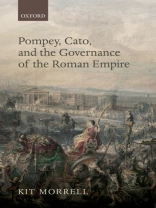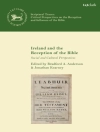Provincial governance under the Roman republic has long been notorious for its corrupt officials and greedy tax-farmers, though this is far from being the whole story. This book challenges the traditional picture, contending that leading late republican citizens were more concerned about the problems of their empire than is generally recognized, and took effective steps to address them. Attempts to improve provincial governance over the period 70-50 BC are examined in depth, with a particular focus on the contributions of Gnaeus Pompeius Magnus (Pompey) and the younger Marcus Porcius Cato. These efforts ranged well beyond the sanctions of the extortion law, encompassing show trials and model governors, and drawing on principles of moral philosophy. In 52-50 BC they culminated in a coordinated reform programme which combined far-sighted administrative change with a concertedattempt to transform the ethos of provincial governance: the union of what Cicero called ‘Cato’s policy’ of ethical governance with Pompey’s lex de provinciis, a law which transformed the very nature of provincial command. Though more familiar as political opponents, Pompey and Cato were united in their interest in good governance and were capable of working alongside each other to effect positive change. This book demonstrates that it was their eventual collaboration, in the late 50s BC, that produced the republic’s most significant programme of provincial reform. In the process, it offers a new perspective on these two key figures as well as an enriched understanding of provincial governance in the late Romanrepublic.
Kit Morrell
Pompey, Cato, and the Governance of the Roman Empire [PDF ebook]
Pompey, Cato, and the Governance of the Roman Empire [PDF ebook]
ซื้อ eBook เล่มนี้และรับฟรีอีก 1 เล่ม!
ภาษา อังกฤษ ● รูป PDF ● หน้า 336 ● ISBN 9780191071249 ● สำนักพิมพ์ OUP Oxford ● การตีพิมพ์ 2017 ● ที่สามารถดาวน์โหลดได้ 3 ครั้ง ● เงินตรา EUR ● ID 5280910 ● ป้องกันการคัดลอก Adobe DRM
ต้องใช้เครื่องอ่านหนังสืออิเล็กทรอนิกส์ที่มีความสามารถ DRM












